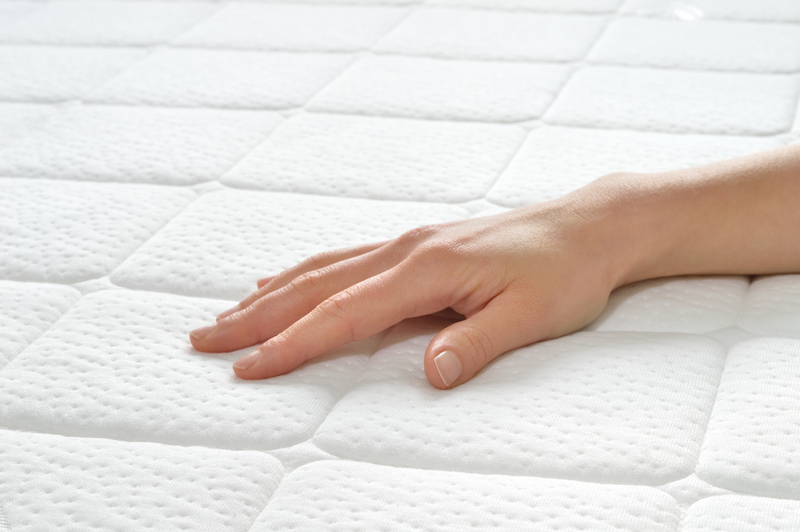Choosing hypoallergenic carpets for allergy sufferers
Posted on 25/07/2024
is an important aspect to consider when designing and decorating a home. Allergies are quite common, affecting around 50 million Americans every year. And one of the most common triggers for allergies is dust mites, which can easily accumulate in carpets, causing discomfort and respiratory issues for those who suffer from allergies. That's why it's essential to choose carpet options that are hypoallergenic and can provide a healthier living environment for individuals with allergies.
Hypoallergenic carpets are designed specifically to minimize or eliminate known allergens such as dust mites, pet dander, pollen, and mold. These carpets are made from materials that are less likely to cause allergic reactions and are often recommended by healthcare professionals for allergy sufferers.
One of the main features of hypoallergenic carpets is their ability to reduce the accumulation of dust mites. Dust mites are microscopic organisms that thrive in warm and humid environments, making carpets an ideal breeding ground for them. However, hypoallergenic carpets are made from tightly woven fibers that create a barrier between these organisms and the surface, preventing them from accumulating and reducing the risk of allergic reactions.
When it comes to choosing the right hypoallergenic carpet for your home, there are several options available in the market. Some popular choices include:
1. Natural Fiber Carpets
Natural fiber carpets such as wool, sisal, and jute are excellent options for allergy sufferers. These fibers have natural properties that make them resistant to allergens and pollutants. They also have anti-microbial properties, which prevent mold growth.
2. Synthetic Fiber Carpets
Synthetic fiber carpets like nylon and polyester are also hypoallergenic. They are made from man-made materials that do not provide a suitable environment for dust mites and other allergens. These carpets also have the added benefit of being stain-resistant and durable.
3. Low Pile Carpets
Carpets with low pile or short fibers are easier to clean and maintain, making them a better choice for allergy sufferers. They also have fewer spaces for allergens to accumulate, reducing the risk of irritation and respiratory issues.
When shopping for hypoallergenic carpets, there are a few tips to keep in mind to ensure you make the right choice:
1. Look for Certifications
Certifications such as the Green Label Plus or the Woolmark indicate that the carpet has been tested and approved as hypoallergenic.
2. Avoid High Pile Carpets
High pile carpets have longer fibers that can easily trap allergens and are more challenging to clean and maintain. It's best to opt for low pile options instead.
3. Consider Professional Installation
Having your hypoallergenic carpet installed by professionals can ensure it is properly laid and sealed, minimizing any gaps where allergens could accumulate.
Like any other product, hypoallergenic carpets have their own set of pros and cons. Let's take a look at them.
Pros:
- Reduce the risk of allergic reactions
- Prevent the accumulation of dust mites, mold, and other allergens
- Better air quality in the home
- Durable and long-lasting
- Available in various types, styles, and colors
Cons:
- Can be more expensive than regular carpets
- May require professional installation
- Some options may have a limited range of styles and colors
Choosing hypoallergenic carpets for allergy sufferers is a smart and practical choice. These carpets can help reduce the triggers for allergic reactions, improve indoor air quality, and provide a more comfortable living environment. When selecting a hypoallergenic carpet, look for certifications, consider the type of fiber, and opt for low pile options.
In conclusion, for individuals with allergies, having hypoallergenic carpets in their homes can make a significant difference in their overall well-being. With various options available in the market, it's easier than ever to find hypoallergenic carpets that fit your style and budget. By following the tips mentioned above and considering the pros and cons, you can choose the perfect hypoallergenic carpet to create a healthier and more comfortable home for you and your family.
What are Hypoallergenic Carpets?
Hypoallergenic carpets are designed specifically to minimize or eliminate known allergens such as dust mites, pet dander, pollen, and mold. These carpets are made from materials that are less likely to cause allergic reactions and are often recommended by healthcare professionals for allergy sufferers.
One of the main features of hypoallergenic carpets is their ability to reduce the accumulation of dust mites. Dust mites are microscopic organisms that thrive in warm and humid environments, making carpets an ideal breeding ground for them. However, hypoallergenic carpets are made from tightly woven fibers that create a barrier between these organisms and the surface, preventing them from accumulating and reducing the risk of allergic reactions.

Types of Hypoallergenic Carpets
When it comes to choosing the right hypoallergenic carpet for your home, there are several options available in the market. Some popular choices include:
1. Natural Fiber Carpets
Natural fiber carpets such as wool, sisal, and jute are excellent options for allergy sufferers. These fibers have natural properties that make them resistant to allergens and pollutants. They also have anti-microbial properties, which prevent mold growth.
2. Synthetic Fiber Carpets
Synthetic fiber carpets like nylon and polyester are also hypoallergenic. They are made from man-made materials that do not provide a suitable environment for dust mites and other allergens. These carpets also have the added benefit of being stain-resistant and durable.
3. Low Pile Carpets
Carpets with low pile or short fibers are easier to clean and maintain, making them a better choice for allergy sufferers. They also have fewer spaces for allergens to accumulate, reducing the risk of irritation and respiratory issues.
Tips for Choosing Hypoallergenic Carpets
When shopping for hypoallergenic carpets, there are a few tips to keep in mind to ensure you make the right choice:
1. Look for Certifications
Certifications such as the Green Label Plus or the Woolmark indicate that the carpet has been tested and approved as hypoallergenic.
2. Avoid High Pile Carpets
High pile carpets have longer fibers that can easily trap allergens and are more challenging to clean and maintain. It's best to opt for low pile options instead.
3. Consider Professional Installation
Having your hypoallergenic carpet installed by professionals can ensure it is properly laid and sealed, minimizing any gaps where allergens could accumulate.
The Pros and Cons of Hypoallergenic Carpets
Like any other product, hypoallergenic carpets have their own set of pros and cons. Let's take a look at them.
Pros:
- Reduce the risk of allergic reactions
- Prevent the accumulation of dust mites, mold, and other allergens
- Better air quality in the home
- Durable and long-lasting
- Available in various types, styles, and colors
Cons:
- Can be more expensive than regular carpets
- May require professional installation
- Some options may have a limited range of styles and colors

The Takeaways
Choosing hypoallergenic carpets for allergy sufferers is a smart and practical choice. These carpets can help reduce the triggers for allergic reactions, improve indoor air quality, and provide a more comfortable living environment. When selecting a hypoallergenic carpet, look for certifications, consider the type of fiber, and opt for low pile options.
Conclusion
In conclusion, for individuals with allergies, having hypoallergenic carpets in their homes can make a significant difference in their overall well-being. With various options available in the market, it's easier than ever to find hypoallergenic carpets that fit your style and budget. By following the tips mentioned above and considering the pros and cons, you can choose the perfect hypoallergenic carpet to create a healthier and more comfortable home for you and your family.




